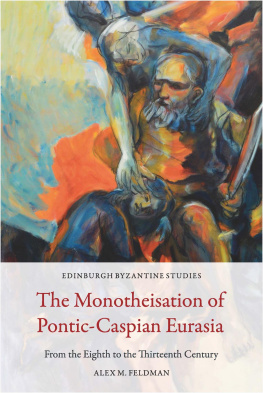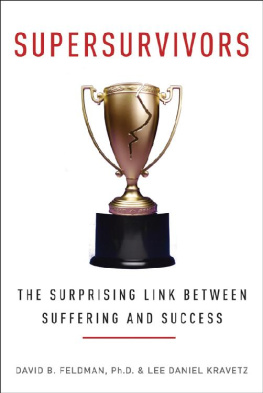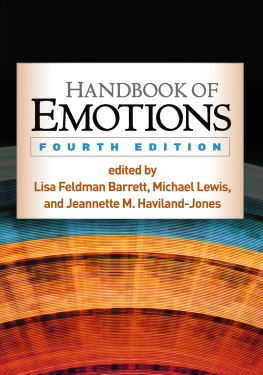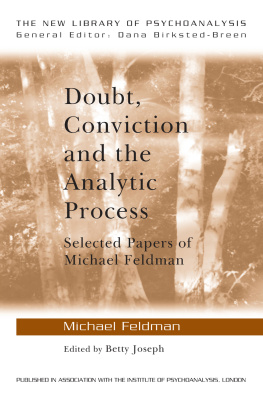Feldman Gerald D. - The Great Disorder
Here you can read online Feldman Gerald D. - The Great Disorder full text of the book (entire story) in english for free. Download pdf and epub, get meaning, cover and reviews about this ebook. year: 1997, publisher: Oxford University Press, Incorporated, genre: Politics. Description of the work, (preface) as well as reviews are available. Best literature library LitArk.com created for fans of good reading and offers a wide selection of genres:
Romance novel
Science fiction
Adventure
Detective
Science
History
Home and family
Prose
Art
Politics
Computer
Non-fiction
Religion
Business
Children
Humor
Choose a favorite category and find really read worthwhile books. Enjoy immersion in the world of imagination, feel the emotions of the characters or learn something new for yourself, make an fascinating discovery.

- Book:The Great Disorder
- Author:
- Publisher:Oxford University Press, Incorporated
- Genre:
- Year:1997
- Rating:5 / 5
- Favourites:Add to favourites
- Your mark:
- 100
- 1
- 2
- 3
- 4
- 5
The Great Disorder: summary, description and annotation
We offer to read an annotation, description, summary or preface (depends on what the author of the book "The Great Disorder" wrote himself). If you haven't found the necessary information about the book — write in the comments, we will try to find it.
The Great Disorder — read online for free the complete book (whole text) full work
Below is the text of the book, divided by pages. System saving the place of the last page read, allows you to conveniently read the book "The Great Disorder" online for free, without having to search again every time where you left off. Put a bookmark, and you can go to the page where you finished reading at any time.
Font size:
Interval:
Bookmark:
The Great Disorder
Politics, Economics, and Society in the German Inflation, 19141924
Gerald D. Feldman

Oxford University Press
Oxford New York
Athens Auckland Bangkok Bogota Bombay
Buenos Aires Calcutta Cape Town Dar es Salaam
Delhi Florence Hong Kong Istanbul Karachi
Kuala Lumpur Madras Madrid Melbourne
Mexico City Nairobi Paris Singapore
Taipei Tokyo Toronto
and associated companies in
Berlin Ibadan
Copyright 1997 by Gerald D. Feldman
First published as an Oxford University Press paperback, 1996
Published by Oxford University Press, Inc.
198 Madison Avenue, New York, New York 10016
Oxford is a registered trademark of Oxford University Press
All rights reserved. No part of this publication may be reproduced,
stored in a retrieval system, or transmitted, in any form or by any means,
electronic, mechanical, photocopying, recording, or otherwise,
without the prior permission of Oxford University Press.
Library of Congress Cataloging-in-Publication Data
Feldman, Gerald D.
The great disorder : politics, economics, and society in the
German inflation, 19141924 / Gerald D. Feldman.
p. cm Includes bibliographical references and index.
ISBN 978-0-19-503791-3; ISBN 978-0-19-510114-0 (pbk.)
1. Inflation (Finance)GermanyHistory20th century.
2. Monetary policyGermanyHistory20th century.
3. Economic stabilizationGermany.
4. GermanyEconomic policy19181933.
5. GermanyEconomic conditions19181945.
I. Title. HG999.F45 1993
332.41094309041dc20 92-19725
For Norma
This book is intended to be a history of German society between 1914 and 1924 centering on the depreciation of the markfrom 4.2 marks to the dollar to 4.2 trillion marks to the dollar and the creation of new currencies that were denominated once again at 4.2 to the dollar. Adding twelve zeros to the exchange rate and then lopping them off again constituted more than an arithmetic exercise. For the great majority of Germans, the Weimar inflation was a truly traumatic experience with incalculable consequences, and in the modern history of inflation it has attained paradigmatic status despite some extraordinary hyperinflations in places like Hungary, China, Germany once again after 1945, parts of the former Soviet Union, and eastern Europe. This is, in part, because the hyperinflation of 19221923 was the most spectacular of its kind ever to hit an advanced industrial society with a market economy and also because Weimars inflation underwent such a protracted development. Though money may not be everything, virtually every significant aspect of life is influenced in some way or other by the quantity and quality of money. In this sense, the German example, extending over a ten-year period, provides the historian with the inestimable opportunity to study the full experience of a great inflation in slow motion.
Inflation is a monetary, financial, and economic phenomenon arising from the decisions of persons who are acting in response to economic interests and theories, political considerations, social pressures, and cultural attitudes. Any one of these aspects and perspectives, or some combination of them, can serve as the basis of a study of the Weimar inflation. The interest here, however, is in their interaction and in identifying what was most significant, most central, at any given time in the unfolding story of the inflation.
To realize this aim, I had to deal with some highly complex and demanding technical and theoretical issues. Reparationsthe constant preoccupation of Germanys rulersis one of these, and the course of the inflation is unintelligible without some reasonably detailed comprehension of the management (or mismanagement) of the reparations problem. Similarly, one cannot understand the making or ending of the inflation without exploring the debates on monetary policy, both theoretical and practical, conducted by Germanys political and economic leaders. Thus, as I try to show in this book, the technical issues, whether of reparations or of monetary policy, whether of price regulation or foreign trade controls, require attention because of their important political and social consequences. Since we now live in a time in which international debt, monetary policy, and balance-of-payments issues are more and more the stuff of front-page reporting in the newspapers, I hope that many of the economic issues discussed here will ring familiar bells, even for the less economically versed of my readers.
It should be clear, however, that this is not an economic interpretation and that the larger arguments of this book do not support economic determinism. Similarly, it takes no ideological stand with respect to the primacy of foreign versus domestic policy or history from above versus history from below. Rather, my work deals with the interaction of foreign and domestic policy, just as it deals with the relationship between those in authority, on the one hand, and those who were sometimes ruled and sometimes imposed their will on their leaders, on the other.
In the most basic sense, I intend this book to be a work of general history that contributes to an understanding of the problems of democratic governance and social stability in advanced capitalist societies. The Weimar Republic has become (and I hope will remain) the most dramatic and fateful historical case of the breakdown of democratic institutions and social order in such a society. Although it has become quite fashionable to make analogies with Weimar whenever a society has serious problems, I am skeptical about using the Weimar experience, or any other major historical episode, in anything but a heuristic manner. The real gain from the history of the Weimar Republic is some insight into the mechanisms by which great disorders are created and lead to even greater disorders; it also provides an opportunity to reflect on paths not taken and on the consequences of asymmetries in economic, social, and political development, that is, failed modernization.
Toward this end, I have tried to reconstruct the history of the German inflation as comprehensively and as accurately as possible. A current tendency of American historians is to question whether we can engage or even claim to be engaging in such enterprises and whether objectivity is possible. This is a book about what happens when money, the representation of value, loses its correspondence to reality, and this phenomenon may have some heuristic value for current debates about historiography. Insofar as the objectivity problem is concerned, I hold the view that the evidential rules and canons of historical scholarship exist as necessary and potent antidotes to human frailties. This is the reason why they should be treated as normative values and not simply as convenient instruments or rhetorical devices. In any case, I have tried to make this a work of continuing value for my fellow scholars and readers by providing material in the text and documentation that can be used to refute my arguments or open the way to alternative interpretations in our common search for the truth.
The research for this book began some fifteen years ago and the writing a decade ago, and I am deeply grateful for the material and personal support I have received along the way. As the bibliography will show, I have produced a variety of articles during these years, a number of which have been taken from the manuscript and some of which have found their way into the manuscript. I am thus also indebted to the institutions and persons mentioned here for their support in completing these studies and to the publishers for allowing incorporation of portions of them here.
Next pageFont size:
Interval:
Bookmark:
Similar books «The Great Disorder»
Look at similar books to The Great Disorder. We have selected literature similar in name and meaning in the hope of providing readers with more options to find new, interesting, not yet read works.
Discussion, reviews of the book The Great Disorder and just readers' own opinions. Leave your comments, write what you think about the work, its meaning or the main characters. Specify what exactly you liked and what you didn't like, and why you think so.










